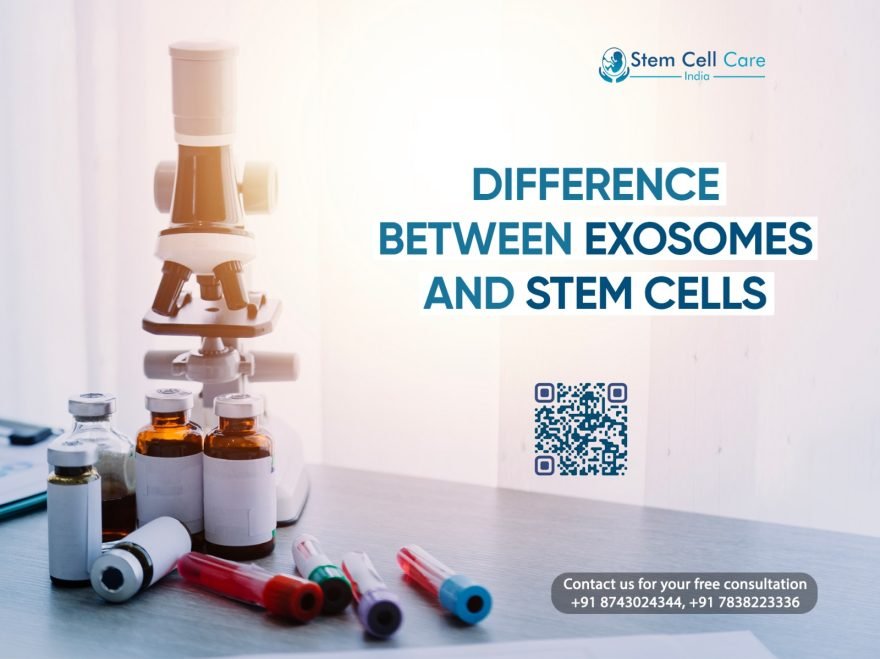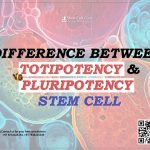New regenerative medicine innovations do provide real life-changing treatments for novel prospects in the treatment of diseases and conditions. Among the innovations developed is the attention given to stem cells and exosomes. However, although both play a crucial role in regenerative therapy treatments, most of the time, people are oblivious to what differentiates the two. Therefore, in this blog, let’s analyze the differences between exosomes and stem cells and their uses in modern therapies, such as exosome therapy.
What Are Stem Cells?
They are the body’s inherent repair mechanism, able to proliferate and replace other dying cells, and can potentially differentiate into all cell types that exist, hence being basically involved in growth and repair whilst also giving rise to many specialized cell types within the body.
There are several types of stem cells, such as:
- Adult Stem Cells: The possibilities expressed by multipotent stem cells in tissue sites like fat and bone marrow are much narrower than those of embryonic stem cells.
- Induced Pluripotent Stem Cells: Adult cells are made to behave like embryonic stem cells through genetic reprogramming.
Among the modern therapies and practices are stem cell therapies, which have been applied to deal with diseases and conditions related to joint damage, heart diseases, diabetes, and neurological disorders.
What are Exosomes?
Exosomes are small extracellular vesicles of nanosized magnitude, secreted by most types of cells, including stem cells. They serve as messengers while transferring proteins, lipids, and even genetic material from one cell to another. These particles are small, but they carry some kind of crucial signal that needs activation of cellular repair, decrease inflammation, and alter immune responses.
Exosomes are not tissue regenerators, though they are known to impact the healing capacity of a body by altering cell-to-cell communication. This is primarily relevant in the context of aging and degenerative diseases, where the networks of the body might have been altered.
Key Differences Between Stem Cells and Exosomes
Although stem cells and exosomes, in general, subsist together on the aspects of the processes within activities of regeneration, these two entities have differences regarding their origin and application. Here are some of the main distinctions:
Nature
- Stem Cells: These are living cells that proliferate and differentiate into any cell type.
- Exosomes: These are non-living particles that act as communication tools between cells.
Function
- Stem cells: They have the ability to multiply and produce new tissue cells from diseased or damaged tissue.
- Exosomes: These are not proliferating cells, but they are cellular mediators of intercellular signals. They enhance healing through the transmission of signals from the stem cells to target tissues.
Treatment Strategy
- Stem Cell Therapy: Insertion of live stem cells into the body to encourage regenerative actions and repair activity.
- Exosome Therapy: It employs exosomes secreted by stem cells to target the damaged tissues and further initiate repair.
Risk Factors
- Stem Cell Therapy: There is always a risk of immune rejection, and sometimes, these cells grow uncontrolled.
- Exosome Therapy: Since exosomes are non-living particles and do not harbor any risk of uncontrolled growth, they are considered safer with lessened risks of the immunity response.
Final Verdict
In the regenerative medicine field, stem cells and exosomes are becoming promising. While one has the cell capability to differentiate and regenerate directly damaged tissues, the other is a powerful messenger that mediates cellular communication, which aids in tissue repair and healing. In particular, exosome therapy is gaining more popularity due to its safety and effectiveness in treating patients with various conditions.
If you want to undergo regenerative therapy, whether it is stem cell therapy or exosome therapy, you should see professionals so that you can select the best one that meets your needs. Expert consultation and necessary treatment are available at Stem Cell Care India so that you can be provided with the most advanced solutions appropriate for your needs.







